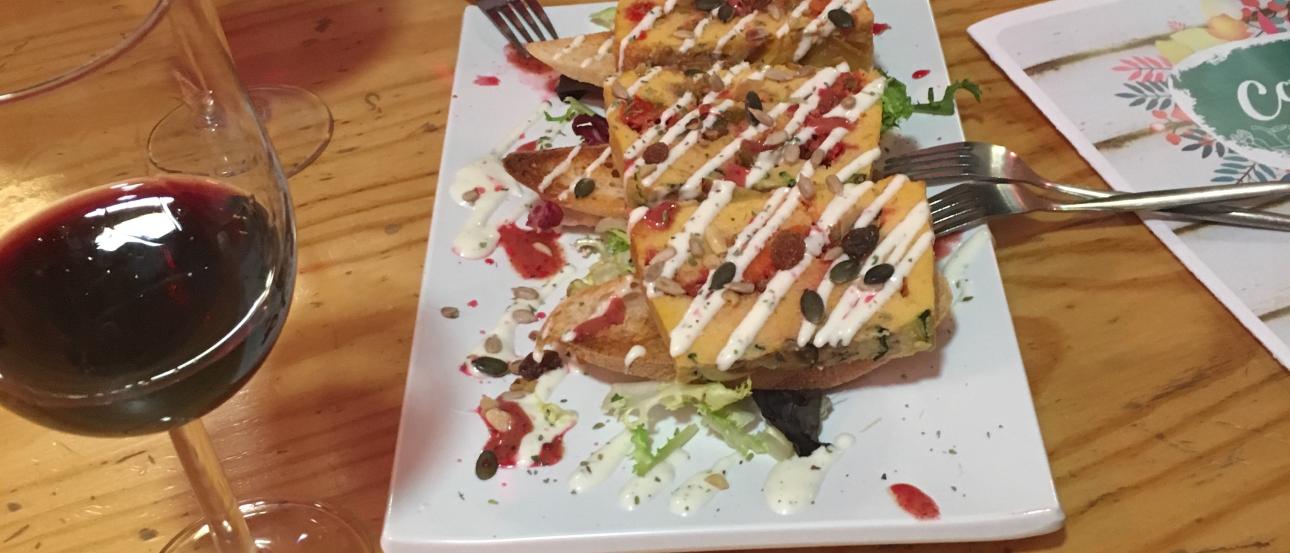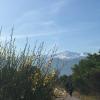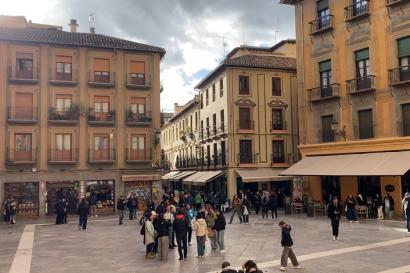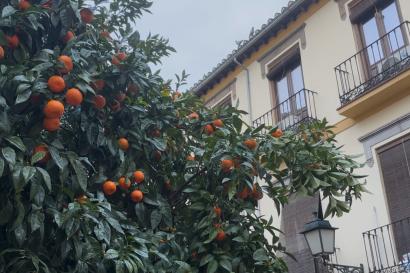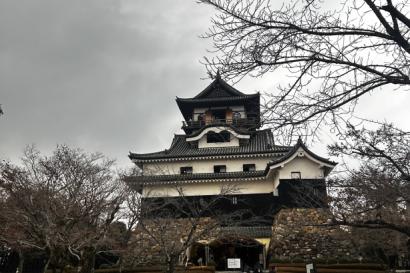One of the main arguments for studying a language in its cultural context is that often the phrases that are essential to understanding a certain culture, are the ones for which there are no direct translations.
Take, for example, the Spanish phrase, tomarse algo. In English, it literally translates, “to take something for yourself.”
When I studied in Sevilla, I was half horrified when my friends would invite me downtown to “take something.” Were they referring to a car or street sign? It turns out, they were referring to a few glasses of wine and a tapa or two.
Not only does this phrase not translate well to English, but the practice to which it refers is distinct to anything we have in the states. Leave your house on any day of the week in Granada, at any hour, and you will people out in the streets, tomándose algo. The time of day usually indicates what people choose to “take.” It could be a post-workday copa and tapa around nine-thirty. Or maybe a five-thirty espresso and light pastry as an afternoon pick-me-up.
On Sundays, it’s a marathon of tomándose algo. Midday beers alongside a big family lunch turn into late-afternoon coffee dates which eventually lead to a few rounds of wine with friends to top the day off.
At first glance, this cultural practice may seem like everything you hoped "abroad" would be. No stress. No worries. Just some good food and drink with some close friends.
Until it’s Sunday afternoon and you have two essays, an exam, and a group project due the next day. You find yourself frantically scurrying around the city in search of a coveted seat in one of the few cafes with WiFi - all the while receiving funny looks from the Spaniards who are busy tomándose algo.
That’s when real culture shock hits.
At my home university in Richmond, we have our own set rituals when it comes to work, food, and drink. Whereas libraries in Spain tend to close around 8pm (so that people can leave to tomarse algo), I usually get to my school’s library around that time. After class, dinner, and club meetings, I am in the “lib” until late every weeknight doing homework. The reward is that every Friday and Saturday night, there are huge parties where my friends and I can dance away all the stress from the previous week. The fun extends through Sunday brunch at noon where we rehash all the events of the past two nights, before retreating once again to our separate study posts to spend the rest of the day working.
In summary, we apply the same pressure to our weekend festivities as we do to our work during the week.
In Granada, libraries are not even open on Sundays. Nor Saturdays for that matter. Where and when do Spaniards work, you ask? It turns out, most study at home. And while many of my Spanish friends do work on Saturday or Sunday, if possible, work is reserved for weekdays.
However, weeknights in Spain can also be spent relaxing in a small bar with friends, or busting moves at the discoteca (if you don’t have class in the morning, of course). Just as Friday and Saturday nights can also be quiet nights in.
The difference is that Spaniards rarely make plans in advance. When my college friends and I have an important event to celebrate, plans are made weeks before. Restaurants are voted on and reserved. Drivers are coordinated.
In Spain, big plans can be thrown together within a half hour - sometimes even ten minutes. Often the time at which you said you’d meet someone becomes the time you call them up to make plans to meet later. This doesn't mean that Spaniards are disrepsectful of others' time - it's that time is more fluid as opposed to dictated. And plans depend less on the place and more on the people you are with.
This spontaneity is expressed in the beautiful vagueness of the phrase, tomarse algo. It simply refers to always present possibility to put aside your work and worries in order “take something” with a few friends. It is the benefit of living in a warm, walkable, Spanish city where a bar or coffee shop is only ever a stone’s throw away.
So where does the negative culture shock come in? Well, it’s difficult when you’ve been trained to thrive in a more structured education system and social climate to adjust to such inconsistency. But the beauty of cultural acclimation is that at some point, inconsistency becomes consistency. And that practice that once frustrated you, becomes one of your favorite parts about living in that culture.
My Tuesday or Wednesday nights in Granada can look like this:

Or this:

Just as many of my Friday and Saturday nights look like this:

Or more accurately, like this:

So will you find me in the bar at 4pm on a Sunday, kicking back with friends? Probably not. I’ll be in my room doing work. However, you will catch me and my friends at 100 Montaditos (our favorite sandwich chain) later that night when every item on the menu is 1€.
On any other given night of the week, it just depends.
It’s all about striking that lucrative balance between cultural immersion and personal conviction. While I’m a girl who likes having her routine, I’ve learned that part of my routine in Spain involves setting aside time to be spontaneous. And while I may never fully acclimate to the practice of tomándose algo, I can embrace the philosophy that it’s always worthwhile to take an hour or two of your day, to share some good drink and food, in the company of close friends.
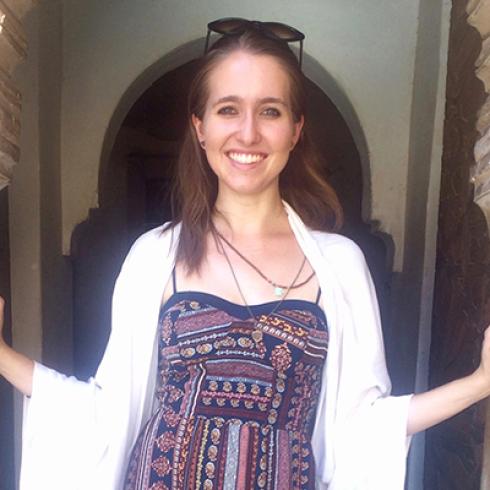
Emily Churchill
Hola caracolas! My name is Emily and I'm studying abroad in Granada, Spain for the 2017-2018 academic year. I'm a Spanish and International Studies major who is always looking for new ways to connect with my beautiful host city. I love to sing, play guitar, act, and have embarked on the journey of writing a historical fiction novel about Granada! In my free time, I love to run and hike in the Sierra Nevada mountains, get lost in the Albaicin, and explore new cafes and tapas bars with my friends. This semester I hope to try my hand at Flamenco guitar, take more siestas, and make even deeper connections with the city and its people.
